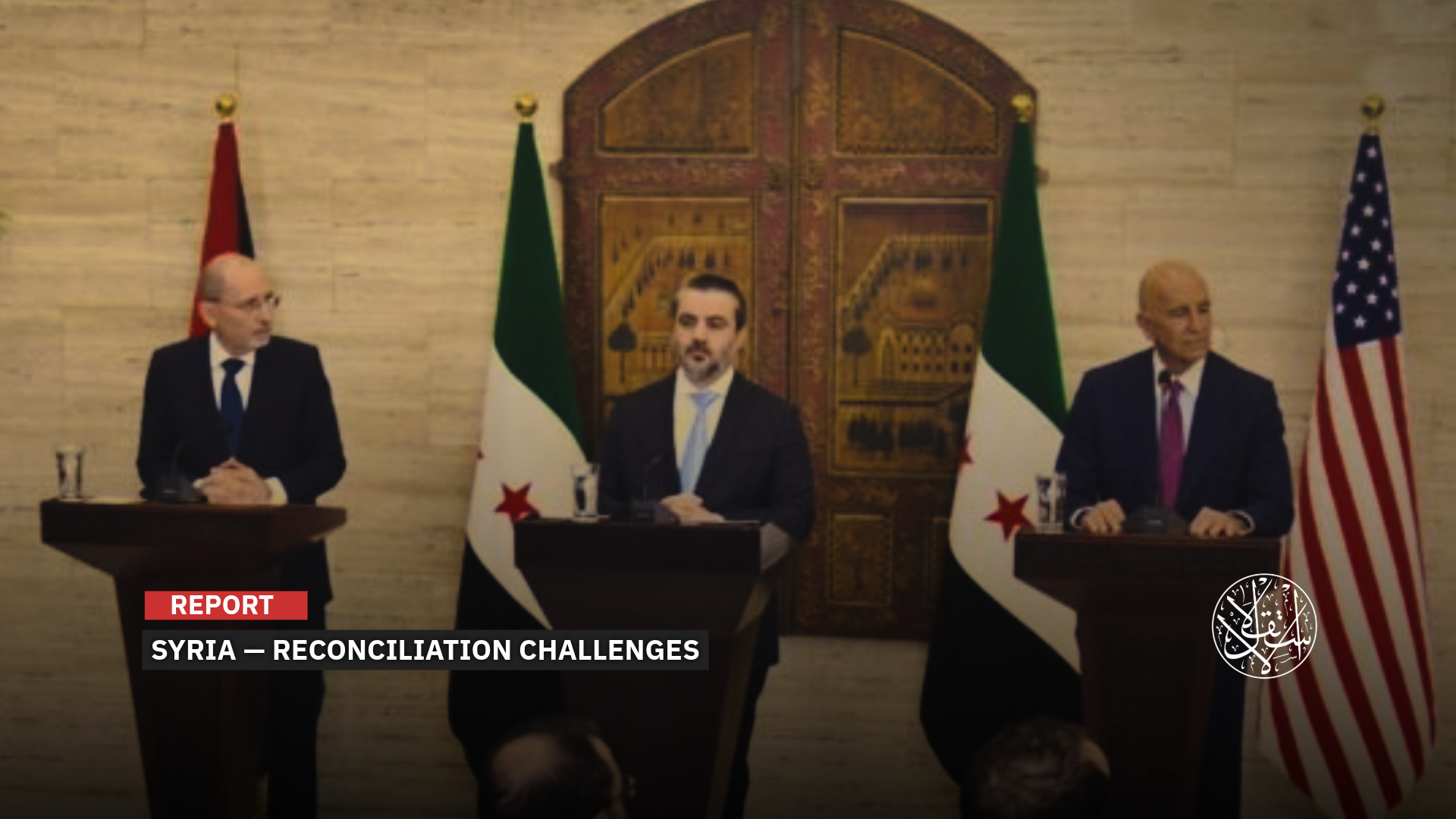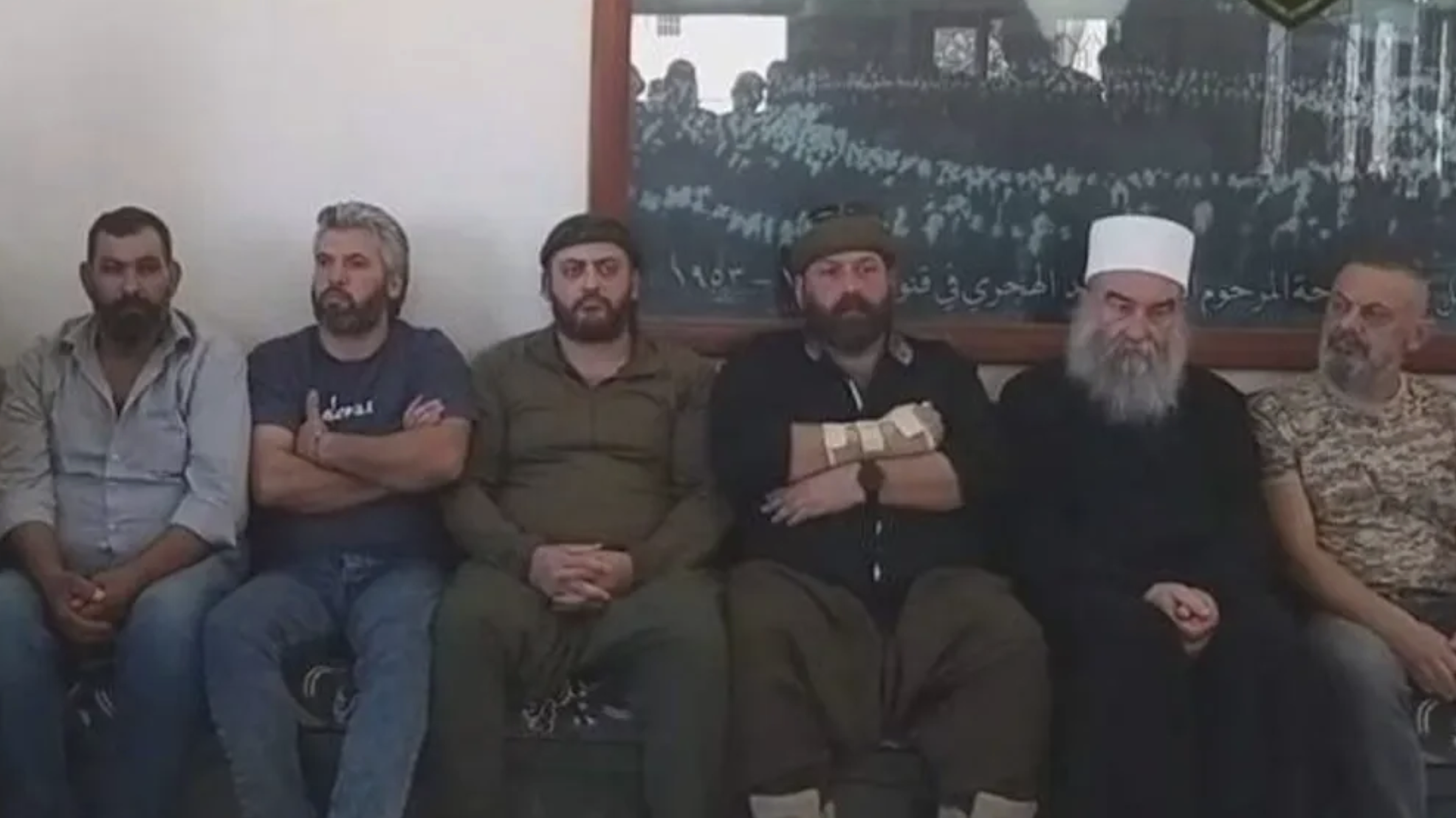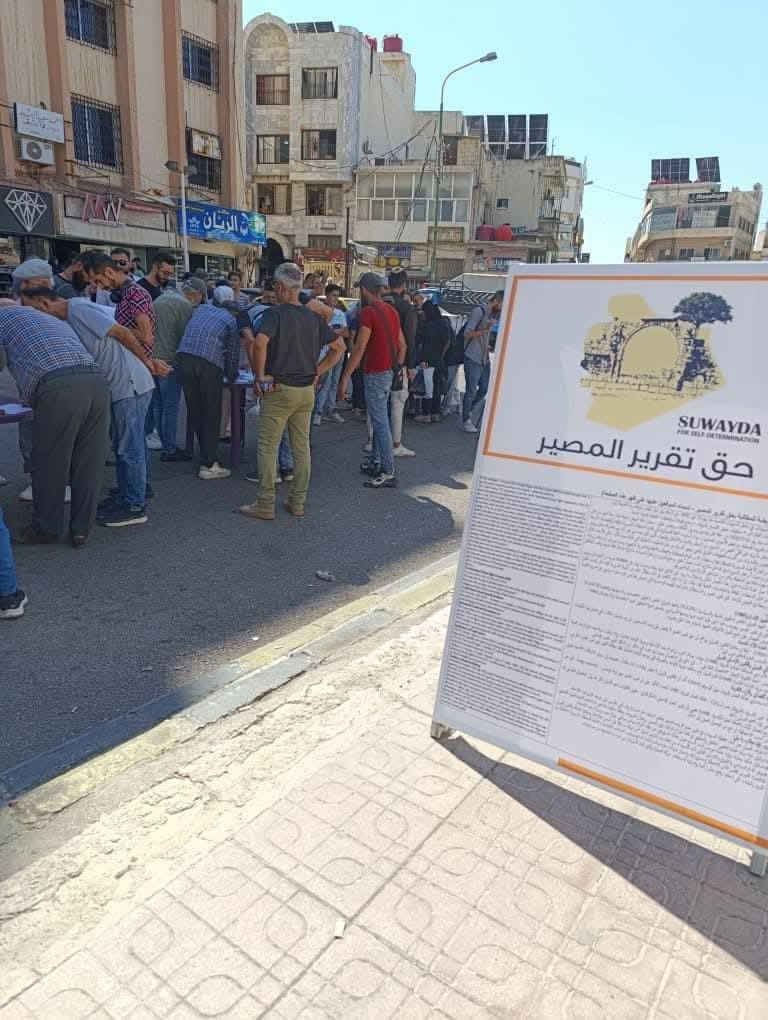Damascus Unveils Reconciliation Roadmap, Al-Hajri Insists on Separation, What Lies Ahead for Sweida?

Damascus remains unable to initiate serious dialogue with Sweida’s current leadership.
The Syrian government has laid out a roadmap, supported by the United States and Jordan, to establish reconciliation in the Druze-majority Sweida province, which remains the focus of calls from Hikmat al-Hajri’s group for separation from Syria, in line with Zionist imperialist schemes.
Syrian Foreign Minister Asaad al-Sheibani announced the roadmap on September 16, 2025, saying at a press conference alongside his Jordanian counterpart Ayman Safadi and U.S. envoy for Syria Thomas Barrett, “The government has put forward a clear roadmap for action, which supports justice, builds trust, and promotes social reconciliation.”

The Road Map
Al-Sheibani pointed out that the roadmap is based on “practical steps, supported by both the Hashemite Kingdom of Jordan and the United States of America.”
According to al-Sheibani, these steps include “holding accountable anyone whose hands are stained with attacks on civilians and their property, in full coordination with the UN system for investigation and inquiry.”
He added that the plan also includes “compensating those affected, restoring villages and towns, and facilitating the return of displaced persons,” as well as “deploying local forces from the Ministry of Interior to protect roads and secure the movement of people and commerce.”
Al-Sheibani said the roadmap involves “working to uncover the fate of the missing, and returning detainees and kidnapped individuals to their families from all parties,” alongside “launching an internal reconciliation process involving all the province’s communities.”
Jordanian Foreign Minister Ayman Safadi noted that “part of the roadmap unveiled today is a joint Syrian-Jordanian-American mechanism to ensure the implementation of everything His Excellency, the Syrian Foreign Minister, has announced, so we can resolve this issue.”
“We found in our brothers in Jordan and our friends in the United States a readiness to provide the necessary support for these steps, whether through humanitarian aid or mobilizing international funding,” al-Sheibani added.
U.S. Special Envoy for Syria and Ambassador to Turkiye, Tom Barrett, described the steps taken today by the Syrian government as “historic.”
Barrett added that the United States, alongside Syria’s neighboring countries, seeks to weave “threads of assistance, understanding, and support into a new fabric, and I believe today marks a key milestone on this path.”
Despite this, the implementation of the agreement remains contingent on al-Hajri’s acceptance and the initiation of practical measures on the ground.
A clear sign of Hikmat al-Hajri’s continued intransigence toward engaging with the new Syrian state is the rejection by the so-called “High Legal Committee in Sweida,” formed by al-Hajri, of the Syrian Foreign Ministry’s roadmap to resolve Sweida’s crisis.
The committee views it as “an attempt to impose new tutelage over the province and to ignore documented crimes committed by government forces against civilians.”
The committee also alleged that the Syrian Foreign Ministry’s statement “contains a glaring contradiction,” calling for an international investigation into violations but then affirming that accountability will be pursued under Syrian law, which the committee considered “a hollowing out of the international investigation, because the accused cannot also be the judge.”
It regarded talk of establishing local councils and joint police forces as “an attempt to sow discord among the people of Sweida,” emphasizing that such measures “will only deepen internal divisions.”

Domestic Challenges
Notably, the aforementioned roadmap was preceded by an announcement from Sheikh Suleiman Abdulbaqi, leader of the “Free Men of Jabal al-Arab Gathering” in Sweida (based in Damascus), who, in a recorded video posted on Facebook on September 15, declared his appointment by Syrian Interior Minister Anas Khattab to manage the internal security file in Sweida province.
Abdulbaqi accused Sheikh Hikmat al-Hajri of causing the Sweida unrest and violating agreements with the Syrian government.
Hikmat al-Hajri’s public attempt to create a new reality in Syria that would isolate Sweida and distance it from Damascus’s central authority became evident when, in a statement on July 16, 2025, he called on Israeli Prime Minister Benjamin Netanyahu to “save Sweida,” openly seeking support from Syria’s enemy and occupier of their land.
At that time, al-Hajri rejected the new state’s control over security and government institutions in Sweida, especially after security forces advanced toward the province on July 13, 2025, to restore stability following clashes between Bedouin tribes and local Druze factions in the surrounding countryside.
Notably, Israel responded to al-Hajri’s calls, launching a major military offensive against Syria on July 16, including airstrikes on more than 160 targets across four provinces: Sweida and the neighboring Daraa, as well as Rif Dimashq and Damascus itself, where the army headquarters and the area around the presidential palace in the capital were bombed.
Brigadier General Ahmad al-Dalati, head of internal security in Sweida, confirmed that more than 200 personnel from the ministries of defense and interior were killed as a result of the Israeli strikes on the first day of clashes in Sweida city and its countryside with al-Hajri’s militia, while over 400 others were injured.
The greatest challenge remains the Syrian government and local community’s ability to implement the plan effectively, preserving Sweida’s unity within the Syrian state.
In this context, military and strategic analyst Colonel Ahmad Hamada told Al-Estiklal, “The United States is determined to implement this roadmap regarding southern Syria, alongside Jordan, which borders Sweida and seeks to protect its borders from drug and arms smuggling.”
“It has become clear that Israel was using the Sweida issue as leverage to sign a security agreement with Syria, improve its terms, or even amend the 1974 disengagement agreement.”
“All these factors indicate that arrangements are nearing completion for a new security agreement between Syria and Israel,” Hamada added.
“Sweida wants to return to Damascus and the path of reconciliation, but this is preceded by difficulties and challenges related to armed factions in Sweida, who will likely obstruct this roadmap because they stand to lose many of their privileges, benefits, and smuggling routes that bring them money.”
“Therefore, the success of the roadmap in resolving Sweida’s crisis depends on Israel ceasing to exploit this province’s file and allowing local initiatives to create a healthy environment for Syrian reconciliation.”
Confidence Crisis
Activists in Sweida launched a campaign in mid-September 2025 under the banner “Right to Self-Determination,” aiming to collect written signatures from residents of villages and towns “demanding the right of Sweida’s people to determine their own fate.”
This followed Hikmat al-Hajri’s call on August 25, 2025, for a “separate” region, coinciding with his efforts to unify armed factions into a single formation.
In a speech delivered at the spiritual leadership headquarters in the town of Qanawat in Sweida province, al-Hajri said, according to a video clip published by the local news site Sweida 24, “After the recent ordeal we endured, which aimed to exterminate us as a Druze community, we call on all honorable people of the world, all free states and free peoples, to stand with us, the Druze community in southern Syria, to declare a separate region to protect us.”
In light of this, many observers note that despite Damascus’s rejection of separatist or divisive demands and its insistence on the unity of Syrian territory, it remains unable to open serious dialogue with Sweida’s current leadership, represented by Hikmat al-Hajri.
Here, Syrian researcher Ammar Jallou sees that “Sweida will delay implementing the roadmap for two reasons. The first is fundamental, since Sweida was not a party to the agreement, which means regional and international actors remain involved in the Syrian issue.”
“Secondly, the new Syrian government’s insistence that it is concerned only with international agreements, not local ones, is a mistake. This approach perpetuates the trust deficit with Sweida’s influential force represented by Hikmat Al-Hajri and his armed groups,” Jallou told Al-Estiklal.
“The commitments mentioned in the roadmap agreement are considerable for the Damascus government, particularly regarding activating accountability for crimes committed by all parties in Sweida.”
“Therefore, involving representatives from Sweida in the roadmap agreement was important but overlooked. This is likely one of the major obstacles facing the roadmap’s implementation, especially with al-Hajri’s group rejecting other Sweida figures who deal with Damascus, whom the latter considers the province’s representatives.”
“The response of Sweida’s military council and Sheikh al-Hajri remains crucial for the roadmap’s provisions to be implemented in practice; otherwise, we face delay tactics similar to those of the Syrian Democratic Forces, which continue to impose conditions for joining the new state.”
The SDF still delays implementing the agreement signed between its leader Mazloum Abdi and transitional president Ahmed al-Sharaa on March 10, 2025, which stipulates the “integration” of all civilian and military institutions affiliated with the Kurdish autonomous administration into the Syrian state, “including border crossings, airports, and oil and gas fields.”
The agreement consists of eight articles, with joint committees expected to complete implementation before the end of 2025.
In an interview with Al Anba TV in mid-September 2025, transitional president Ahmed al-Sharaa said, “Negotiations with the SDF were proceeding well, but there appears to be some obstruction or delay in implementing the agreement,” confirming that international parties have intervened to mediate.
Senior SDF officials have stepped up public statements insisting that “there can be no compromise” on the demand for decentralized pluralism in Syria’s political system, while Damascus rejects political decentralization or federalism.
On September 17, 2025, a demonstration took place in the center of Qamishli, in Hasakah countryside under SDF control, demanding decentralization and reaffirming commitment to the Kurdish autonomous administration.
Kurdish leader Aldar Khalil renewed the administration’s call for decentralization during the protest, saying, “When we talk about decentralization, we want it for all of Syria, not just our region.”
Sources
- "The Legal Committee in Sweida" rejects the roadmap to resolve the crisis in the governorate [Arabic]
- Hikmat Al-Hajri calls for a "separate" region for Syria's Druze [Arabic]
- Authorized by the Interior Ministry.. Suleiman Abdulbaqi announces his appointment to manage Sweida security file [Arabic]
- Al-Safadi: Israel is the only party that wants to divide Syria Damascus announces a roadmap to establish reconciliation in "Sweida" with American-Jordanian support [Arabic]












